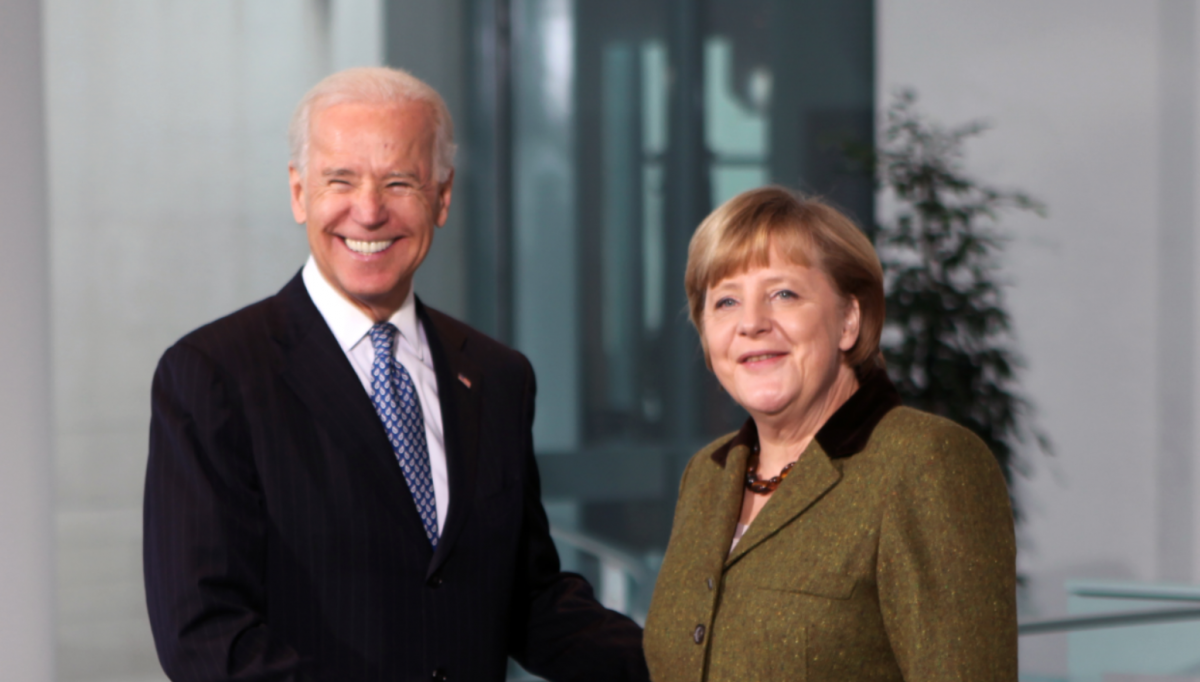EU should take lead in climate cooperation with the US - political analyst
Clean Energy Wire: The American voters have elected Joe Biden, who has vowed to rejoin the Paris agreement and set targets for the world's biggest economy to have net-zero emissions by 2050. Can we expect Biden to take up climate leadership again like his Democratic predecessor Barack Obama or will the US remain restrained?
Susanne Dröge: I think we can expect a leadership role but not to the same extent as we witnessed with the Obama administration. I think the pattern they will follow will be similar, but there are so many demands put on this government domestically that they will not be able to use their resources only on climate. Also, there are many other international issues they need to take care of, so I don’t see how they can channel all those resources in that direction.
In the climate arena the US will be back in the team of leading countries. They will join the EU in bringing the climate regime forward, and they will probably approach China again to cooperate in that field.
Earlier this year, China announced a goal to reach carbon neutrality before 2060. European leaders welcomed this pledge as part of the international climate drive. How will a resurgent US impact the EU-China cooperation that has emerged during Trump's term?
I don’t think that cooperation between the EU and China has improved in the last years. The opposite was evident this year when the EU and China tried to hold a summit [the High Level Trade and Economic Dialogue], which was not very productive.
Chinese policy on climate is on and off. At the moment there are positive signals, as the announcement at the UN General Assembly in September of an NDC plus a goal to become carbon neutral before 2060. But that was a surprise move; even the ministers in China did not know about the high-level announcement. And it could be that the Chinese just wanted to step into the void left by the US.
Going forward, how do you think the new position of the US will change relations between the EU and China?
That’s a good point. On the one hand, pressure for the EU and China to work together will be reduced once the US returns to the international playing field. It will also depend on how much the US and China will cooperate again, and on which topics, for instance on climate finance. If the US is able to offer money again, maybe China will get back to offering money too – we don’t know. But as said, China is on and off regarding climate and will have to adjust first and foremost to the new US foreign policy altogether.
Biden's green energy plan proposes investments of 2 trillion dollars in a low-carbon economy, akin to European ambitions under the EU Green Deal. Do you expect that the US efforts to transition to green energy will mean especially close cooperation between the EU and US?
Yes, I think so. In terms of market competition the EU's Green Deal has established a strong signal to investors that green production will enjoy privileged entry to the EU markets. If something similar happens in the US it will be a big stimulus for cooperation for sure.
Take the example of electric cars. If there was a clear signal by the US government to foster electric mobility, and EU car builders were in the position to deliver to those markets, that could be a positive thing. What makes this a tricky example is US trade policy. Trade is an important issue also for Biden and he will likely also follow the ‘America first’ approach to some extent. It would be the best of all worlds if the US would enter renegotiations on trade and also incorporate a green agenda in their trade agreements.
That could mean closer cooperation is possible, but will competition still be stiff on many issues?
Of course. I feel it’s all about how much governments will interfere in this area, with subsidies, with regulations, and whatever competitiveness and national-champion policies they have. In Europe, the interest will rise with the implementation of the Green Deal, which means that governments across the EU would foster particular industries, for instance hydrogen. But in the energy sector in the US, favorable conditions for fracking and gas could remain even though methane regulation could return. There will be a tendency to stick to fossil energy, while in Europe we try to get beyond that point.
But when I think about innovation, I also think about other sectors than production of renewable energies, for example digitalization and efficiency investments. I expect a mix. If we look back, EU companies mostly see US companies as leaders in innovation.
German finance minister Olaf Scholz said the Biden presidency essentially opens up the opportunity to start negotiations about a transatlantic emissions trading scheme. How likely do you think it is that the US will consider this?
I think that will be high on the incoming administration's agenda as a political project. Yet it is not clear if the Senate will sign up for anything like a carbon price – be it a tax or emissions trading. The Senate is actually the problem for the Biden administration when it comes to implementing climate regulation. If it remains under Republican control after a runoff election in the state of Georgia on 5 January, it will be very difficult for Biden to get through new legislation that is substantial - and a carbon tax or an ETS [Emissions Trading System] will be substantial.
At the same time, some states in the US already have carbon pricing in place. I think that the ETS linking agenda could be revived. But I don’t think it’s very realistic that the US will embark on broader carbon pricing as a regulatory approach.
And how about sustainable finance? Could the vast US financial sector become a trailblazer here under a more proactive government?
The financial system in the US, especially for startups, is completely different from the one we have here. There is venture capital, and also initiatives to divest from fossil fuels come from the US, and I think the key connect here is with the recovery packages for the pandemic, whether or not there will be money earmarked for green investments. Especially infrastructure investments matter when we talk about the federal level in the US.
Biden’s 2-trillion-dollar investment plan looks promising given what he can do with his executive authority, which helps to circumvent the Senate. But money is tight. It’s likely that Biden will combine green investment and stimulus packages. Also, it will be interesting how fossil-fuel investors and Wall Street will react.
In the EU, a lot of things have happened in the financial sector in this respect and it’s also a question of how international financial institutions like the World Bank or the IMF will further frame the green and sustainable investment story. It’s on a good path but it needs more substance, and that is where the US comes in. If US government green spending is increasing it will produce spillover effects. I'm not sure about capital markets though, because in the US these are very short-term focussed.
European carmakers, not just German companies but also French and Swedish ones, are in a very good position to get more market share in the US once the regulation kicks in.
German car manufacturers like VW, BMW and Mercedes all have factories in the USA. These companies might feel relieved that trade relations with America are likely to ease up, but perhaps also worried that environmental regulation will be tightened. How will the change in power affect carmakers?
I think we will see a revival of the fuel efficiency standards for cars, already implemented by the Obama administration and taken back by Trump. The climate targets that the Biden administration will announce need to be supported also by regulations in the transport sector. This will be beneficial for German carmakers. On average, many German cars, even those with combustion engines, are much more efficient and climate-friendly than American cars.
However, the electric cars being built by BMW for instance here in Germany are SUVs. Thus if there is a stronger demand in the US for electric vehicles, BMW will have an advantage in the market because SUVs are still in high demand in the US.
In general, I see that European carmakers, not just German companies but also French and Swedish ones, are in a very good position to get more market share in the US once the regulation kicks in.
Do you expect a softer approach by Biden regarding the completion of the German-Russian gas pipeline project Nord Stream 2? Both parties in the US Senate agreed on sanctioning companies involved in the joint venture, causing a great deal of diplomatic upheaval between Berlin and Washington.
Nord Stream 2 was never a topic raised by Trump himself, it always came from the Senate, even before the Trump administration. So I am not very positive about this. It is probably a matter where the EU and Germany should take a next step and offer to deescalate.
The Navalny case shows that even German policymakers have started to think about the pipeline project as a sanctioning tool. In general and given the complexities, I feel it is not in the capacity of the US president to get this off the table.
What other things will remain difficult under a Biden presidency?
From an international point of view, delivering on the Paris Agreement will remain very difficult. Many countries are struggling with the pandemic and can’t take care of international issues at this time. There are so many topics on the incoming government's agenda that it will be difficult to quickly revive the process. There is also a lot of doubt regarding the credibility of the US – maybe in four years, we will see a return of Trumpism. Building up the trust again that the country is a reliable partner in this respect is becoming more and more difficult.
Even though there will be a fast re-entry to the Paris Agreement and the delivery of an ambitious NDC, the international will to cooperate with Washington is not a given. That is an underlying feeling that will remain, I think. Before countries invest again in climate action – which very much depends on international cooperation – they will probably think twice. It will remain very difficult even though the US will probably bring forth many procedural things that are now on the table for the COP26.
How should the EU – and Germany in particular - prepare for this change in leadership?
For a renewed co-leadership, there is a list of things the EU and Germany would first and foremost like to talk about with the US. The EU and Germany of course will need to know what the US can deliver – as I said, with the Senate, and all the caveats, the pandemic, the budget problems, the security policy problems, the challenges posed in overall foreign policy. The EU and Germany will need to remain flexible to a certain degree and should offer support in particular in the transition period.
I think the EU, or Germany, could play a very constructive role by inviting the US partners to come on board and to prepare their re-entry and to support them in everything. The support could also be diplomatic, explaining again what the situation in the US is to other countries. Being the facilitator to a very productive exchange is the role I see in international climate diplomacy here. The EU and Germany are in the position to take the lead in this cooperation and they should do so.



